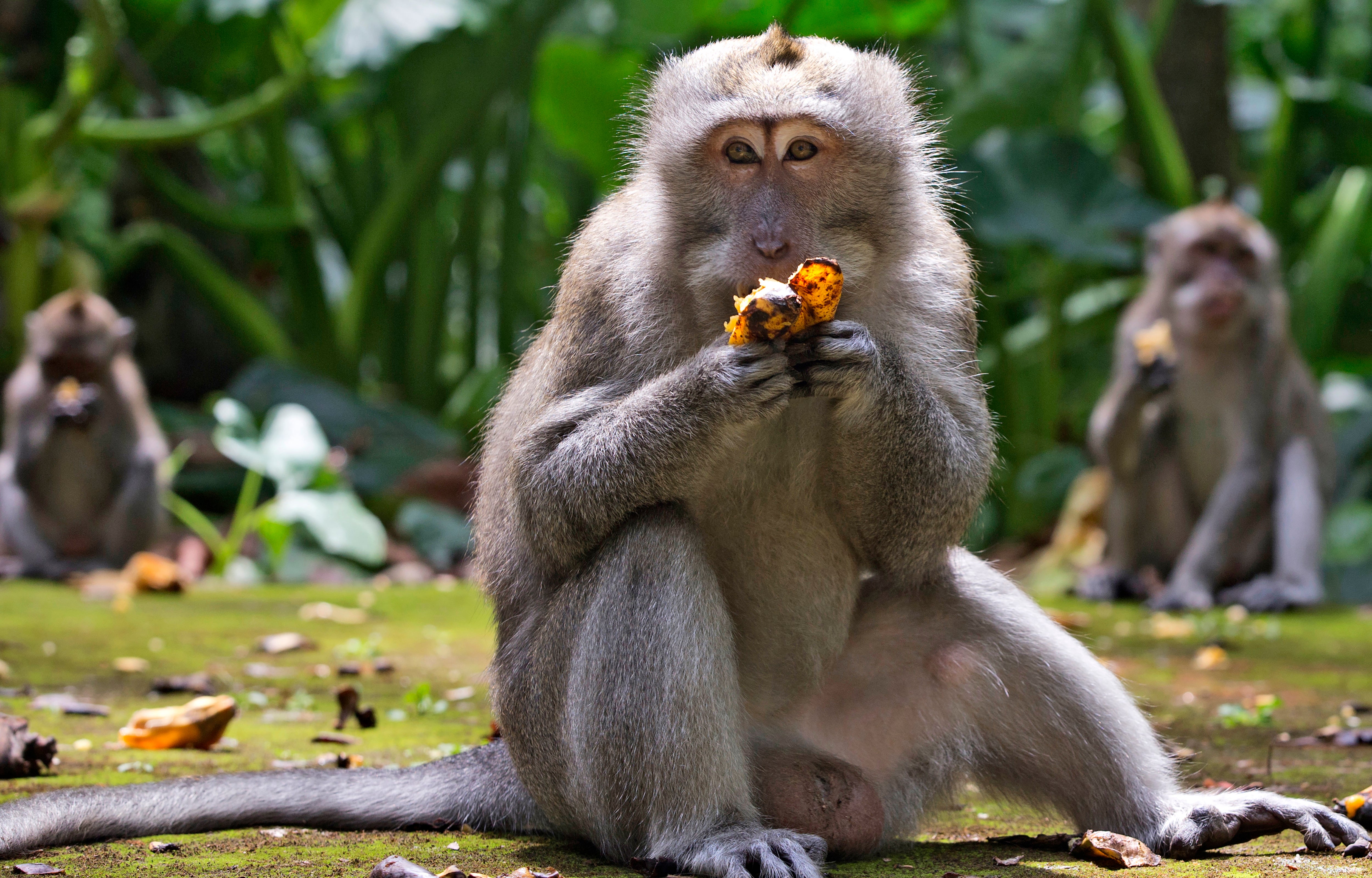With no tourist handouts, hungry Bali monkeys raid homes
Deprived of their preferred food source _ the bananas, peanuts and other goodies brought in by tourists now kept away by the coronavirus _ hungry monkeys on the resort island of Bali have taken to raiding villagers’ homes in their search for something tasty

Your support helps us to tell the story
From reproductive rights to climate change to Big Tech, The Independent is on the ground when the story is developing. Whether it's investigating the financials of Elon Musk's pro-Trump PAC or producing our latest documentary, 'The A Word', which shines a light on the American women fighting for reproductive rights, we know how important it is to parse out the facts from the messaging.
At such a critical moment in US history, we need reporters on the ground. Your donation allows us to keep sending journalists to speak to both sides of the story.
The Independent is trusted by Americans across the entire political spectrum. And unlike many other quality news outlets, we choose not to lock Americans out of our reporting and analysis with paywalls. We believe quality journalism should be available to everyone, paid for by those who can afford it.
Your support makes all the difference.Deprived of their preferred food source — the bananas, peanuts and other goodies brought in by tourists now kept away by the coronavirus — hungry monkeys on the resort island of Bali have taken to raiding villagers’ homes in their search for something tasty.
Villagers in Sangeh say the gray long-tailed macaques have been venturing out from a sanctuary about 500 meters (yards) away to hang out on their roofs and await the right time to swoop down and snatch a snack.
Worried that the sporadic sorties will escalate into an all-out monkey assault on the village, residents have been taking fruit, peanuts and other food to the Sangeh Monkey Forest to try to placate the primates.
“We are afraid that the hungry monkeys will turn wild and vicious,” villager Saskara Gustu Alit said.
About 600 of the macaques live in the forest sanctuary, swinging from the tall nutmeg trees and leaping about the famous Pura Bukit Sari temple, and are considered sacred.
In normal times the protected jungle area in the southeast of the Indonesian island is popular among local residents for wedding photos, as well as among international visitors. The relatively tame monkeys can be easily coaxed to sit on a shoulder or lap for a peanut or two.
Ordinarily, tourism is the main source of income for Bali’s 4 million residents, who welcomed more than 5 million foreign visitors annually before the pandemic.
The Sangeh Monkey Forest typically had about 6,000 visitors a month, but as the pandemic spread last year and international travel dropped off dramatically, that number dropped to about 500.
Since July, when Indonesia banned all foreign travelers to the island and shut the sanctuary to local residents as well, there has been nobody.
Not only has that meant nobody bringing in extra food for the monkeys, the sanctuary has also lost out on its admission fees and is running low on money to purchase food for them, said operations manager Made Mohon.
The donations from villagers have helped, but they are also feeling the economic pinch and are gradually giving less and less, he said.
“This prolonged pandemic is beyond our expectations,” Mohon said, “Food for monkeys has become a problem.”
Food costs run about 850,000 rupiah ($60) a day, Mohon said, for 200 kilograms (440 pounds) of cassava, the monkeys' staple food, and 10 kilograms (22 pounds) of bananas.
The macaque is an omnivore and can eat a variety of animals and plants found in the jungle, but those in the Sangeh Monkey Forest have had enough contact with humans over the years that they seem to prefer other things.
And they’re not afraid to take matters into their own hands, Alit said.
Frequently, monkeys wander into the village and sit on roofs, occasionally removing tiles and dropping them to the ground. When villagers put out daily religious offerings of food on their terraces, the monkeys jump down and make off with them.
“A few days ago I attended a traditional ceremony at a temple near the Sangeh forest,” Alit said. “When I parked my car and took out two plastic bags containing food and flowers as offerings, two monkeys suddenly appeared and grabbed it all and ran into the forest very fast.”
Normally, the monkeys spend all day interacting with visitors — stealing sunglasses and water bottles, pulling at clothes, jumping on shoulders — and Alit theorizes that more than just being hungry, they’re bored.
“That’s why I have urged villagers here to come to the forest to play with the monkeys and offer them food,” he said. “I think they need to interact with humans as often as possible so that they do not go wild.”
___
Karmini reported from Jakarta Associated Press writer David Rising in Bangkok contributed to this report.